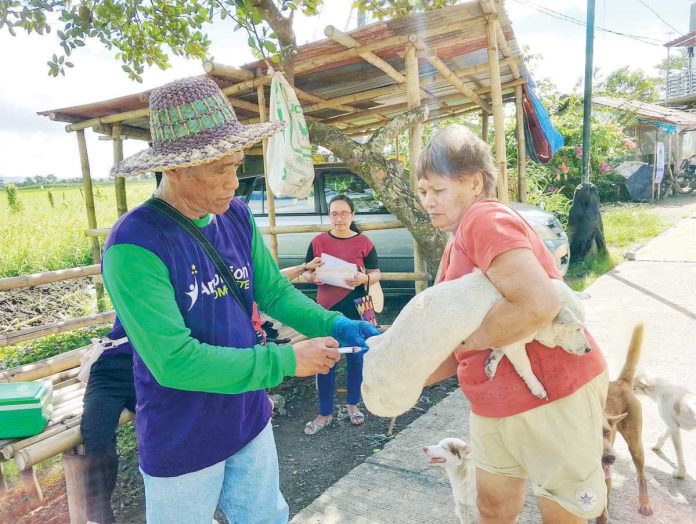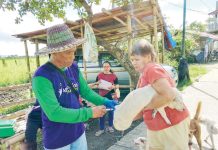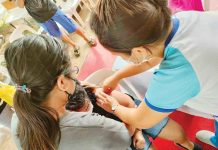
ILOILO – In a major step toward eliminating rabies, the provincial government has successfully vaccinated over 70 percent of its estimated 367,907 dog population this year, a feat credited for the province’s zero human rabies deaths as of yesterday, June 9.
The Provincial Veterinary Office (PVO), in coordination with 43 local government units (LGUs), vaccinated a total of 257,663 dogs between February 4 and June 9, reaching 70.03% of the total dog population. This milestone is widely regarded as the critical threshold for achieving herd immunity in rabies prevention.
Rabies is a fatal viral disease that affects the central nervous system of mammals, including humans. It is primarily spread through the bite or scratch of an infected animal — most commonly, dogs. The virus is present in the saliva of a rabid animal and enters the body through broken skin or mucous membranes.
Of Iloilo’s 42 municipalities and the component city of Passi, 27 have surpassed the 70% dog vaccination target, with Banate and Cabatuan leading at 96% each, followed by Barotac Viejo (94%), Miag-ao (93%), Leganes (93%), and Anilao (93%).
According to PVO head Dr. Darel Tabuada, the success of these LGUs is largely due to their decision to hire barangay-level vaccinators who conducted house-to-house campaigns.
“Those who hired additional vaccinators achieved faster and wider coverage. LGUs that didn’t hire struggled to reach the target,” Tabuada told Panay News.
The 16 LGUs that failed to meet the 70% benchmark include Zarraga, Barotac Nuevo, Santa Barbara, San Dionisio, Alimodian, Balasan, Dueñas, Leon, San Rafael, Pavia, San Enrique, Passi City, Dumangas, Badiangan, Calinog, and Lambunao. These municipalities were granted extended time to complete their vaccination drives, as many still have remaining vaccine supplies.
Originally scheduled from February 1 to April 30, the province-wide vaccination campaign was extended due to the recent May 12 midterm elections.
Dr. Tabuada emphasized the importance of preventing rabies at the source — by vaccinating dogs.
“Vaccinating dogs is crucial in breaking the chain of rabies transmission. So far, the result has been promising — we’ve had no reported human rabies deaths in Iloilo from January 1 to June 9.”
Initial symptoms of rabies in humans may resemble the flu, including fever, headache, and general weakness. As the virus progresses, more severe symptoms appear, such as anxiety, confusion, hallucinations, difficulty swallowing, and fear of water (hydrophobia). Once clinical signs appear, rabies is almost always fatal.
Tabuada said another key factor in keeping rabies at bay is improved public response, with more bite victims promptly visiting bite treatment centers for post-exposure vaccination. This is attributed to the provincial government’s aggressive information and education campaigns.
To protect themselves, individuals bitten or scratched by animals — especially stray or unvaccinated dogs — should immediately wash the wound with soap and running water for at least 15 minutes, then seek medical attention for post-exposure prophylaxis (PEP) at the nearest bite center.
To support the campaign, Gov. Arthur Defensor Jr. allocated P9 million this year to procure over 21,000 vials of anti-rabies vaccines — enough to inoculate around 210,000 dogs across the province.
In 2024, the PVO managed to vaccinate 283,755 dogs, covering 87.37% of that year’s total dog population./PN






